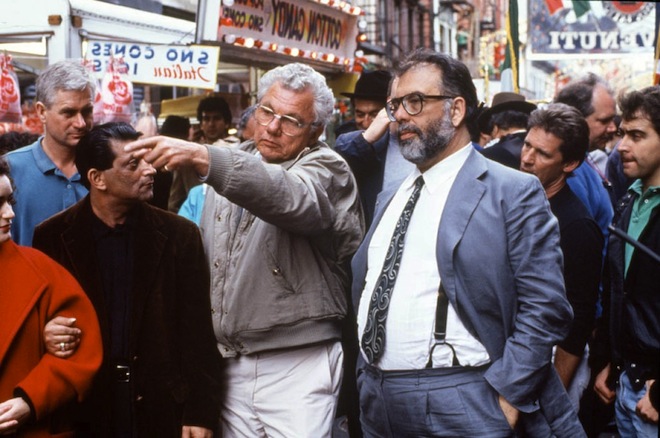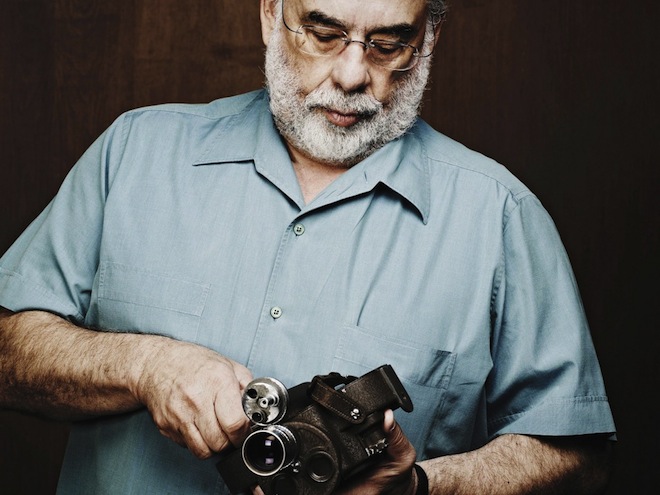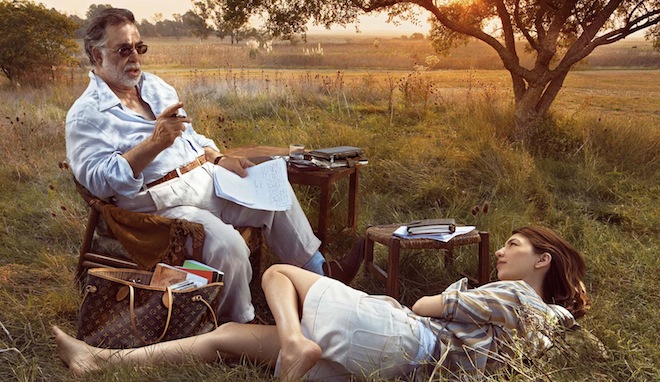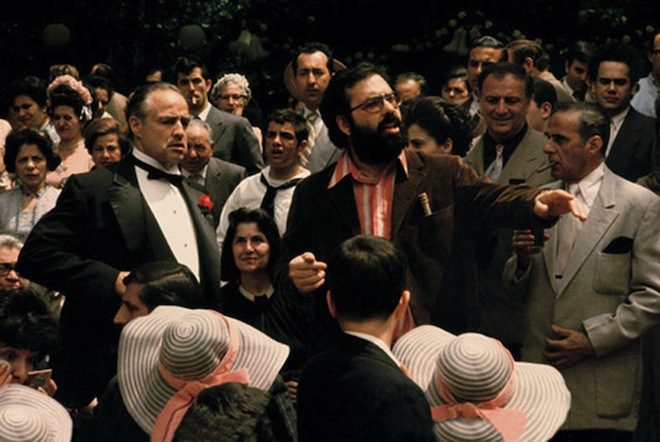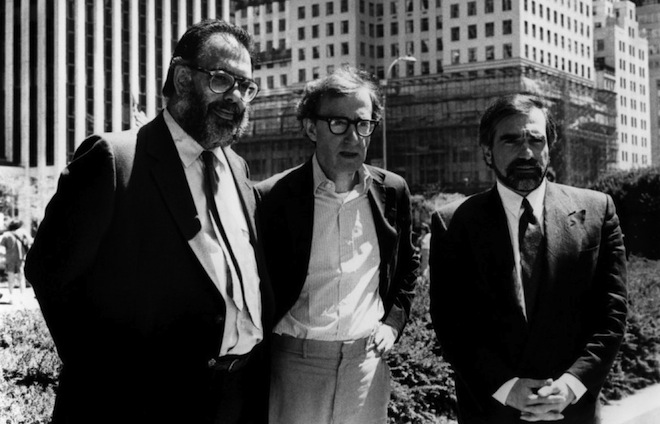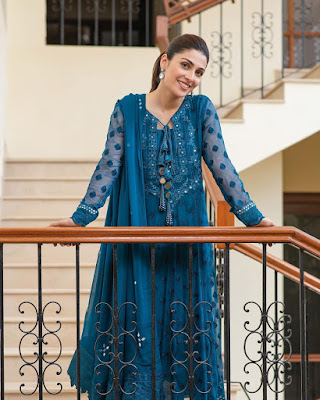Tuesday, 15 May, 2012 17:18 on EOShd.com
THREE RULES
1) Write and direct original screenplays
2) Make them with the most modern technology available
3) Self-finance them
EOSHD takes a look at Francis Ford Coppola’s approach to filmmaking with the help of the 99%
Francis Ford Coppola (Apocalypse Now, The Godfather) recently did a very candid interview with the 99% a blog by Behance (not related to the anti-capitialst movement)…Rather than just re-print it all I going to give you what I think are the most crucial bits of advice and my thoughts on it…
Filmmaking can never be mastered
“I just finished a film a few days ago, and I came home and said I learned so much today. So if I can come home from working on a little film after doing it for 45 years and say that – that shows something about the cinema”
A director is constantly coming up against new techniques and technologies. Coppola has a 3D section in his latest movie which is inspired by a drunken dream. To stay on top of the new stuff is vital. The world is a dynamically shifting place. Before you master something it will change. Coppola says he refused to teach a Master Class because he believes he’s still a student. I believe the best way to learn filmmaking is to just do it.
Risks are essential
“Even in the early days of the movies, they didn’t know how to make movies. They had an image and it moved and the audience loved it. You saw a train coming into the station, and just to see motion was beautiful. The cinema language happened by experimentation – by people not knowing what to do. But unfortunately, after 15-20 years, it became a commercial industry. People made money in the cinema, and then they began to say to the pioneers, “Don’t experiment. We want to make money. We don’t want to take chances.” An essential element of any art is risk. If you don’t take a risk then how are you going to make something really beautiful, that hasn’t been seen before? I always like to say that cinema without risk is like having no sex and expecting to have a baby. You have to take a risk.
“I was never afraid of risks. I always had a good philosophy about risks. The only risk is to waste your life, so that when you die, you say, Oh, I wish I had done this.”
I’ve written about why creativity is such a risk before at EOSHD, you can read that article here. Commercial filmmaking is safe as it needs to turn a profit. The most artistic filmmaking comes from the people who take a gamble. It is a gamble not just on the gear but mainly on people – actors, writers, composers, producers, marketing teams – and on ideas. That gamble costs money. Usually your money! At the end of your career is it best to have a load of zeros on the end of your bank balance or to have lived and to have made great films?
Don’t rely on memory, put your ideas on paper
“One of the most important tools that a filmmaker has are his/her notes. [Date them, put the location on]“
One way to do this is to turn your notes into a blog. Many people are afraid of exposing ‘their work in progress’, preferring only to show stuff when it is ready. Be candid – the work in progress says as much as the final film.
If you don’t begin by imitating, you won’t begin at all
“Don’t worry about whether it’s appropriate to borrow or to take or do something like someone you admire – because that’s only the first step and you have to take the first step.”
Ideas are never formed in a vacuum. They are the product of what goes on between minds, between communities, between countries. It helps to borrow (stealing is too strong a word – you’re not depriving the original artist of their work) then develop the idea in your own way. Over time you can create something genuinely new and original from it. All the great artists have done and where this is clearest is in music. The Beatles stole from 50′s R&B and that turned out pretty well. Oasis stole from The Beatles and helped form the Brit Pop scene in the 90′s which was genuinely new.
Above: Francis Ford Coppola and Sofia Coppola. With advice this good no wonder Sofia Coppola is a great filmmaker in her own right. This is a glossy ad for a fashion giant, and it pays the bills for his self funded titles.
Don’t rely on selling your art directly
“Try to disconnect the idea of cinema with the idea of making a living and money. Because there are ways around it. You work another job and get up at five in the morning and write your script. Maybe the students are right. They should be able to download music and movies. I’m going to be shot for saying this. But who said art has to cost money? And therefore, who says artists have to make money?”
The idea of people paying to watch films is outdated. In 5 years people will not pay to watch your film, they will not pay to listen to your music. Instead the new distribution model is crowd funding – where you give someone a sense of ownership of the film along with merchandise and a credit as a producer, or working a day job. This could be anything from an office job, to writing for a magazine, or blogging, or teaching workshops on filmmaking, or being paid to produce content and films for businesses.
Where I disagree with a lot of people here however is about the purity of an artist’s hand. Don’t use your hand to promote a product. Use your reputation or personal endorsements but not your hand. If Coppola had shot and directed a glossy ad like the one above, it would devalue his hand as an artist. His hand should be used for art, not selling.
Listen but filter intently
“A screenplay has to be like a haiku [Japanese poetic form]. It has to be very concise and very clear, minimal. [But when you come to shoot it] you’re going to listen to the actors because they have great ideas. You’re going to listen to the cinematographer because he will have a great idea. You must never be the kind of director, I think maybe I was when I was 18, “No, no, no, I know best.” That’s not good. You can make the decision that you feel is best, but listen to everyone, because cinema is collaboration. I always like to say that collaboration is the sex of art because you take from everyone you’re working with.”
I agree here only to a certain extent. Listening is one thing but the really important thing is filtering and judgement. A filmmaker must absorb the world around him but if your internal filtering lacks taste, you will create shit. You will act on the wrong ideas. You will involve the wrong people. You will choose the wrong gear. You will send out the wrong message as a filmmaker. I believe the ability to filter crap is the filmmaker’s biggest intuitive asset and very little of that is learned later on. The rest of it comes from within, from your upbringing and the culture of where you grew up and what you absorbed.
Even as a cinematographer in a specialised role, creating a composition and framing the shot – you are constantly relying on your filter to pair down the shot to something beautiful. The art of photography is reductive not additive. To throw out the stuff that looks bad and only include the stuff that looks good, you first have to know what is good and what isn’t. That is a real talent.
Even writing a blog like EOSHD is a challenge for filtering. If I drew attention to the wrong stuff, it wouldn’t be interesting, but what is interesting is in the eye of the beholder. So as an artist, it helps to have sympathy with your audience.
When making a movie focus on a theme
“When you make a movie, always try to discover what the theme of the movie is in one or two words. Every time I made a film, I always knew what I thought the theme was, the core, in one word. In The Godfather, it was succession. In Apocalypse, it was morality. The reason it’s important to have this is because most of the time what a director really does is make decisions. All day long: Do you want it to be long hair or short hair? Do you want a dress or pants? Do you want a beard or no beard? There are many times when you don’t know the answer. Knowing what the theme is always helps you.
“I remember in The Conversation, they brought all these coats to me, and they said: Do you want him to look like a detective? Do you want him to look like a blah blah blah. I didn’t know! And [because the theme was privacy] I chose the plastic coat you could see through. So knowing the theme helps you make a decision when you’re not sure which way to go.”
A tight focus – this is what makes a film more effective, more moving, more beautiful. If you don’t have anything driving that focus, you’re not directing. You’re guessing. The cinematography I’m most proud of on EOSHD came from when I had a tight focus on a theme. With Modernisation it was a poor / rich divide and the old world being overtaken by a powerful new one. With For a Minute I Lost Myself it was the terror and disorientation of out of control capitalism in a crazy metropolis. For Longshan’s People II it was the people and tradition versus 1000 missiles pointed at Taiwan by China. In each of these cases each idea was gifted to me by the location, I didn’t invent anything. These were all emotional factors driving the compositions. If the place you live in does’t give you any new inspiration, the answer is to travel. If the people you have around you don’t give you any inspiration, the answer is to meet new people. The life you live is essential for giving you the ideas to base films on.
Cast with improvisation sessions
“With improvisations, they really stick if there’s something sensual connected with them, like food or eating or making something with their hands.”
I think improvising is better than sticking rigidly to a script when casting an actor, because the actor is forced to give more of their personality. Rather than forcing them to get their head into a character, see what they are like as a person and what they bring to the film as a character in their own right, see if they are a fit to the script. I believe the best actors should be like close friends on the same page as you, and firing ideas back and forth. It takes a long time to find a creative team, including actors, writers and other collaborators in filmmaking but it is worth persevering.
Don’t force anything.
Above: Coppola with Woody Allen and Martin Scorsese in New York
Have conviction in your vision and ‘bake the scene in the oven’
“When I was young on a movie set, I would try to stage the scene and the actors would read it, and I said – Well, you stand here and you sit there…[But] They would say – Well, I don’t think I should sit there, I should stand there. And I don’t think this line is right….And they would begin to challenge the text. What I learned, which is a simple idea, is that if you hold out with your vision a little bit, it’s like a cake being put in the oven. The scene doesn’t work immediately, you have to bake it a little bit. It’s unfair, when you begin to create a shot, say, or a scene, that it’s going to immediately be like those beautiful scenes in the movies. It needs a little bit of time to mature.”
Kubrick was famous for take after take, after take. This is a bonafide working technique that delivers. A scene morphs and shifts as it bakes in the oven. The trick is to know when to take it out.
Don’t lie to yourself
“You never have to lie. If you lie, you will only trip yourself up. You will always get caught in a lie. It is very important for an artist not to lie, and most important is not to lie to yourself. There is something we know that’s connected with beauty and truth. There is something ancient. We know that art is about beauty, and therefore it has to be about truth.”
I think the worst scripts are those where someone acts as they wouldn’t do in real life. It takes me right out of the film. Avoid bullshitting your audience and don’t insult their intelligence with the obvious. Pair down the shots to those that move the story forward. Nobody wants to see a character walking around from room to room in a lame attempt to introduce some tension, pacing or build up. The hand of the artist, when writing and directing, is all about touching what provides atmosphere, drama, emotion and intrigue and what is just surplus to requirements.
Have confidence
“The artist always battles [their own] feeling of inadequacy. Self confidence is the biggest barrier to becoming a filmmaker. We are very insecure. People are insecure, not just young people. Everyone is insecure.
“They say that Barbara Streisand, when she goes on, she has a panic attack. She feels she can’t sing. Of course, she can sing. I believe that when you write something, when I write something, I turn it over and I don’t look at it. Because I believe the writer, the young writer, has a hormone that makes them hate what they’ve written. And yet, the next morning, when you look at it, you say, “Oh that’s not bad.” But the first second you hate it. ”
Even the greatest artists have doubts. Can I do it? Filmmaking is such a mammoth effort that you have to be crazy to devote so much time to something you think you might not be any good at. But it is far easier (and less risky) to fail due to lack of faith than it is to fail trying.
Source: EOShd
